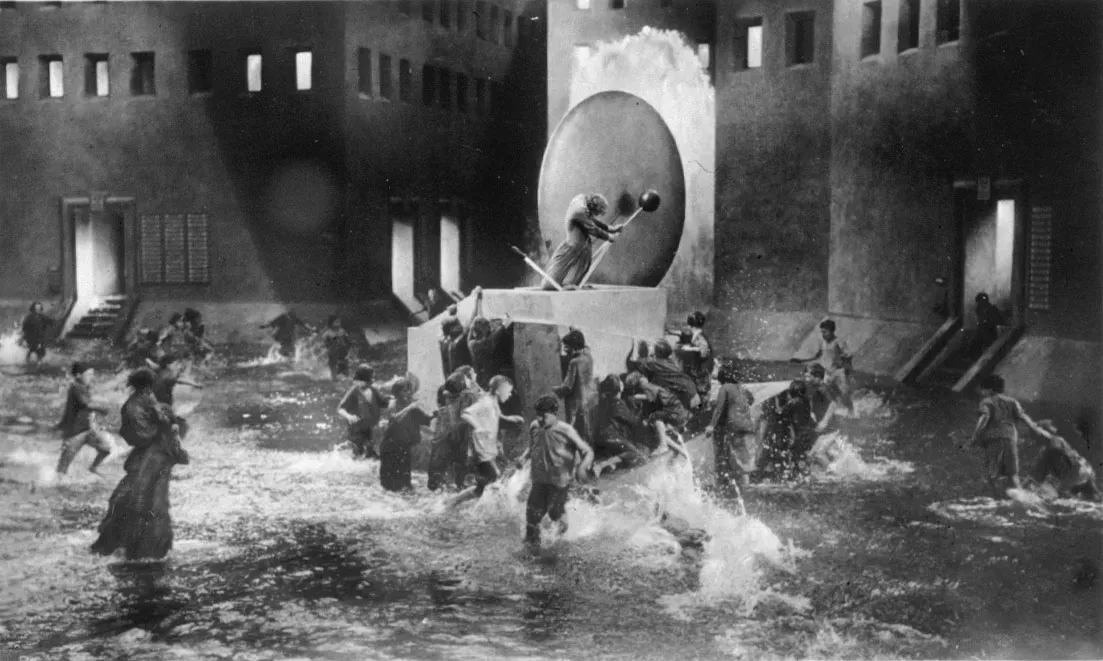Fritz on Fridays: Metropolis
Not all masterpieces are without their flaws. I’m sure the Sistine Chapel has its dents and dings, too.

On the first Friday of every month, this column by critic Joshua Polanski will feature a short review or essay on a film directed by Fritz Lang (1890-1976), the great Austrian “Master of Darkness.” Occasionally (but not too occasionally), Fritz on Fridays will also feature interviews and conversations with relevant critics, scholars and filmmakers about Lang’s influence and filmography.
Metropolis turned 98 years old this year. The world looked very different in 1927 Weimar Republic-era Germany when the film first premiered. Decades before Christopher Nolan called it a “key touchstone,” H.G. Wells, a contemporaneous grandfather of science fiction, called it “the silliest film” and Mordaunt Hall from The New York Times deemed it a “technical marvel with feet of clay.” Its reception has only gotten better with the years and re-releases. Roger Ebert even called the version bastardized by a Giorgio Moroder score “one of the most exciting movies to watch that you’re ever going to see.”
In its time, Metropolis was still mostly well-regarded, and its technical spectacle was always, and remains, undeniable. In fact, its legacy would be briefly tainted by the wrong people liking the film. Nazi admiration encouraged Fritz Lang to keep the film at an arm’s length; at least that’s how he couched his reservations. Some scholars even argue Lang’s masterpiece inspired the notorious Nazi propaganda film Triumph of the Will: “When compared to one another, Triumph des Willens is easily seen as a propaganda reinvention of Metropolis.” World powers have rotated and scientific achievements have quadrupled since 1927. And if it’s possible for the instant classic to grow better with age, Lang’s science-fiction leviathan has become even more relevant as the present gets closer and closer to Joh Fredersen’s dystopic and slavish vision of modern urbanity.
The dystopian future resembles our present. Clocks have been resurfaced for 10-hour workdays in the name of technological advancement, wealthy industrialists exploit the overwhelming majority to soothe their bottom line, and the same big pockets control the megacities that make up the world. The rich even have access to video-chat tech that looks more impressive than the large screens that greet guests in many luxury apartments’ front doors. Lang’s vision for FaceTiming looks more like the monstrous screens in a Tesla and they are equally accessible only to the richest of the rich. One edition of Thea von Harbou’s original novel even claims a 2026 setting.
Nestled away in the utopic Club of the Sons and his father’s indomitable Art Deco monument called the Tower of Babel, Freder Fredersen (Gustav Fröhlich) is ignorant of the way his posh life — with a host of women prepared to “entertain him” in an Edenic garden — depends on the exploitation of his “brothers” in a city beneath his. Almost a full decade later, Korean director Bong Joon-ho would win multiple Academy Awards with Parasite by similarly, but vertically, visualizing the economic and material disparity: The poor live below, the rich lounge above. The only character we encounter who lives on the ground level is the crazed inventor, Rotwang (Rudolf Klein-Rogge), torn between the two worlds.
Continue reading at the Midwest Film Journal.